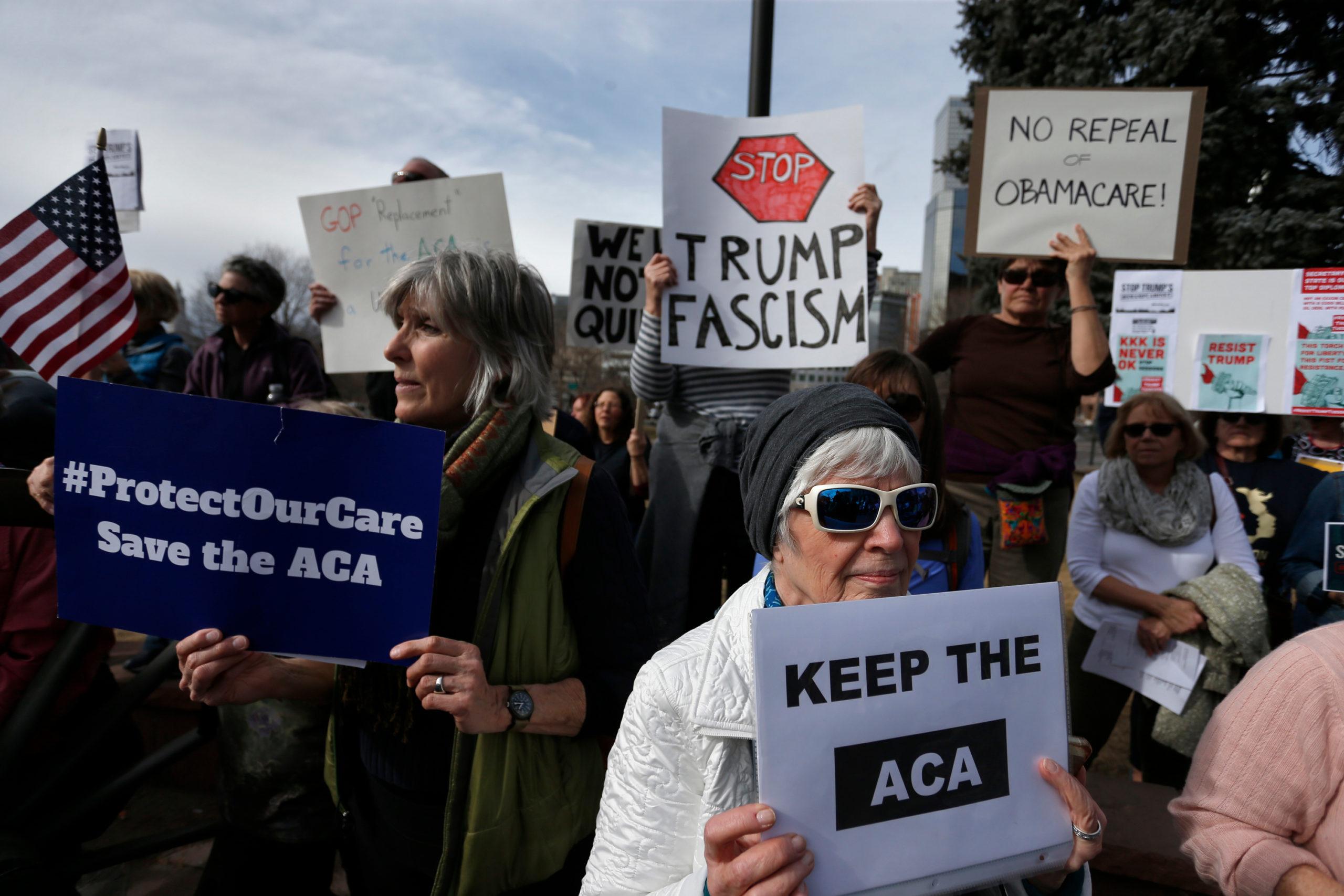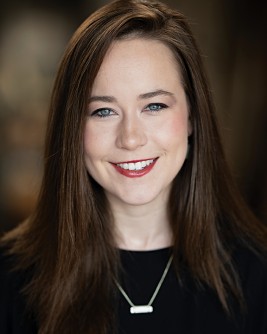
With eight Democratic candidates still in the race, and as many health care plans at candidates, there's a lot of information for voters to wade through to understand the policies they might cast a ballot for.
Yet over and over, voters tell us that health care is a driving issue for them in this years’ state and national elections.
As Super Tuesday approaches, we all need a check-up on the presidential candidates’ health policies. How do the Democratic contenders differ, and what happens to your health care if President Trump is re-elected?
A couple of health policy experts joined two Colorado voters on Colorado Matters this week to answer those questions.
John Daley is Colorado Public Radio’s health reporter.
Larry Levitt is the Kaiser Family Foundation’s executive vice president for health policy. KFF is non-profit and non-partisan. Levitt oversees its policy work on Medicare, Medicaid, the health care marketplace, the Affordable Care Act, women’s health and global health.
Those two Colorado voters say that health care is a top priority for them as they consider presidential candidates.
Allison Nuanes was born and raised in Denver. She became a self-employed realtor four years ago. That meant giving up her company’s health plan. Since then, she and her family have navigated health insurance on and off Colorado’s exchange.
“I was on the exchange for a little over two years, and I didn't love the choices. They were really difficult to navigate," she said.
Her family cobbled coverage together. In 2018, she was on one Kaiser plan, pregnant with her son. Her husband and daughter were on a different Kaiser plan.

“After having given birth to my son on that plan, I was met with very, very large bills even though we had huge premiums to begin with,” Nuanes said.
She estimates their family paid $1,000 per month in premiums. So they all switched to a plan that wasn't actually compliant with the Affordable Care Act because the insurer screens for preexisting conditions. But, it was cheaper.
When she looks at presidential candidates, Nuanes said she “doesn’t have a lot of hope” that health care policy will change quickly.
“I'd really like something a little more realistic than, ‘Hey, everybody's going to get health care as soon as I'm elected and everybody's going to have one plan,'" she said.
Yet Nuanes' favorite candidate so far is one who favors Medicare for All — Sen. Elizabeth Warren.
“Maybe I have more hope than I say I do. I would love to have Medicare for All. I guess I'm not going to hold my breath,” she said.
Paul Jones retired five years ago from sales management, mostly in California’s tech industry. Now he relies on private insurance to augment his coverage on Medicare.
“Medicare is really just a basic health care plan. It's not the kind of insurance that my wife and I enjoyed over 45 years of working for employers," he said.
Jones’ two main health care concerns are the security of Medicare and Medicaid, and affordable health care for his children.
“What could possibly happen to Medicare and or Medicaid by the rattling of swords by the Republicans to go after the entitlement programs?" Jones said. "Then, my son was in Italy and just recently returned to the United States. He's in school and really needs affordable health care. Those are the two things that are impacting me right now.”
He believes “socialized medicine is the way we should go,” but like Nuanes, Jones is skeptical a Medicare for All plan is viable right now.
“I think Buttigieg's idea of really trying to shore up Obamacare and make it what it should've been to begin with is probably the best alternative,” Jones said. “By the same token, I don't believe Buttigieg can beat Trump. It's troubling. I know what I think should happen, but I don't think it will happen.”
What are the biggest health and health care issues facing Colorado that a president, whoever it is, might address?
Daley: I think it really gets to what our guests, Allison and Paul, talked about; it's cost. A lot of people get health care, and maybe they're okay with the quality. The quality you don't hear so many complaints about, but you do hear a lot of complaints about, "Can I get in to see a doctor? Do I have that access? Can I afford it? Can I afford the prescription drugs that I need?" I really think cost is the big driver.
The country's marquee health law is the Affordable Care Act, or Obamacare. It reduced the uninsured rate in Colorado partially by expanding Medicaid. Where does the law stand right now?
Levitt: Probably the most important thing to know about the law right now is it is being threatened in court. There's a lawsuit that was filed by a number of Republican states that's supported by President Trump that would overturn the ACA entirely. That law has been working its way through the courts. The Supreme Court is actually considering right now whether to take the case or send it back to the lower courts, but that is the biggest threat to the ACA right now is the courts.
Which of the major presidential candidates want to maintain the ACA?
Levitt: There are sort of three camps among the democratic candidates. There's one camp who want to build on the ACA by creating a public option that would give people the choice of private insurance or a Medicare life plan, and also expand the subsidies. For example, to people like Allison who found the marketplace insurance very expensive, the subsidies would be expanded to make the premiums more affordable.
This first camp who want to build on the ACA includes Joe Biden, Michael Bloomberg, Pete Buttigieg, and Amy Klobuchar.
The next camp is Bernie Sanders, who is clearly associated with the idea of Medicare for All. He has made Medicare for All a priority in this campaign and when he ran previously in 2016.
The third camp is Elizabeth Warren. She has supported Medicare for All and continues to support Medicare for All, but she's offered a somewhat more nuanced strategy to get there.
What she's proposing is to start off with a public option that looks very similar to that first camp. She has pledged to pass that public option in the first hundred days of her presidency.
The idea is to give people a look at how a Medicare-like plan would look and give them a choice. Then she has said she would push for Medicare for all plan by year three of her first term. She's very supportive of Medicare for All, but I think it's very possible that what we would end up with Elizabeth Warren as president is a public option that looks very much like what those other candidates are supporting.
What sorts of trends in health care would you expect to see if President Trump is reelected?
Levitt: One thing we know about President Trump and health care [is that he supports] this lawsuit to overturn the ACA. Certainly in his first term President Trump supported failed efforts to repeal and replace the ACA.
The president has promised a plan to replace the ACA on numerous occasions. We haven't seen that plan yet, but if you look at the budgets he's proposed, he has proposed to turn the ACA into what's known as a block grant — to turn it over to the states and relax a lot of the rules, insurance rules and the Affordable Care Act. He's also proposed to cap funding for Medicaid and reduce that funding over time by quite a bit.
How do the health care issues of rural Colorado differ from those of urban, and how are those playing into upcoming elections?
Daley: Generally, rural health care is more expensive, and there's less access. Those two things are connected. We know that parts of Colorado have traditionally had some of the most expensive health insurance in the entire country, in the mountains and the Western Slope.
Part of that is because we have parts of Colorado where there's only one insurer, 22 counties have one insurer, Anthem Blue Cross and Blue Shield, and no other alternative. That's up from 14 the prior year. It's challenging for insurers to do business to make money in areas that aren't well populated.
We know that in urban areas like the Front Range, you generally have more choices and that helps drive the costs down and because of all that, it's really hard to get access in some parts of the state. You hear stories of Coloradans who have to drive for hours just to get to a hospital, or they don't have a clinic nearby. Especially if you have some major emergency, that's a big problem.
Levitt: It's absolutely true. In rural areas, it's not just that you often only have one insurance plan to choose from, but you often only have one hospital or one doctor practice to choose from as well. Not all of the basic laws of economics apply to health care all the time, but certainly some do.
When you have a monopoly hospital, it's often going to be much more expensive than if you have competing hospitals that drive down the price. That's where the idea of Medicare for all or a public option has the potential to drive down costs. Where the government would be exercising leverage and offering a more affordable option.
These are select moments from their conversation. Comments have been condensed and edited for clarity.









